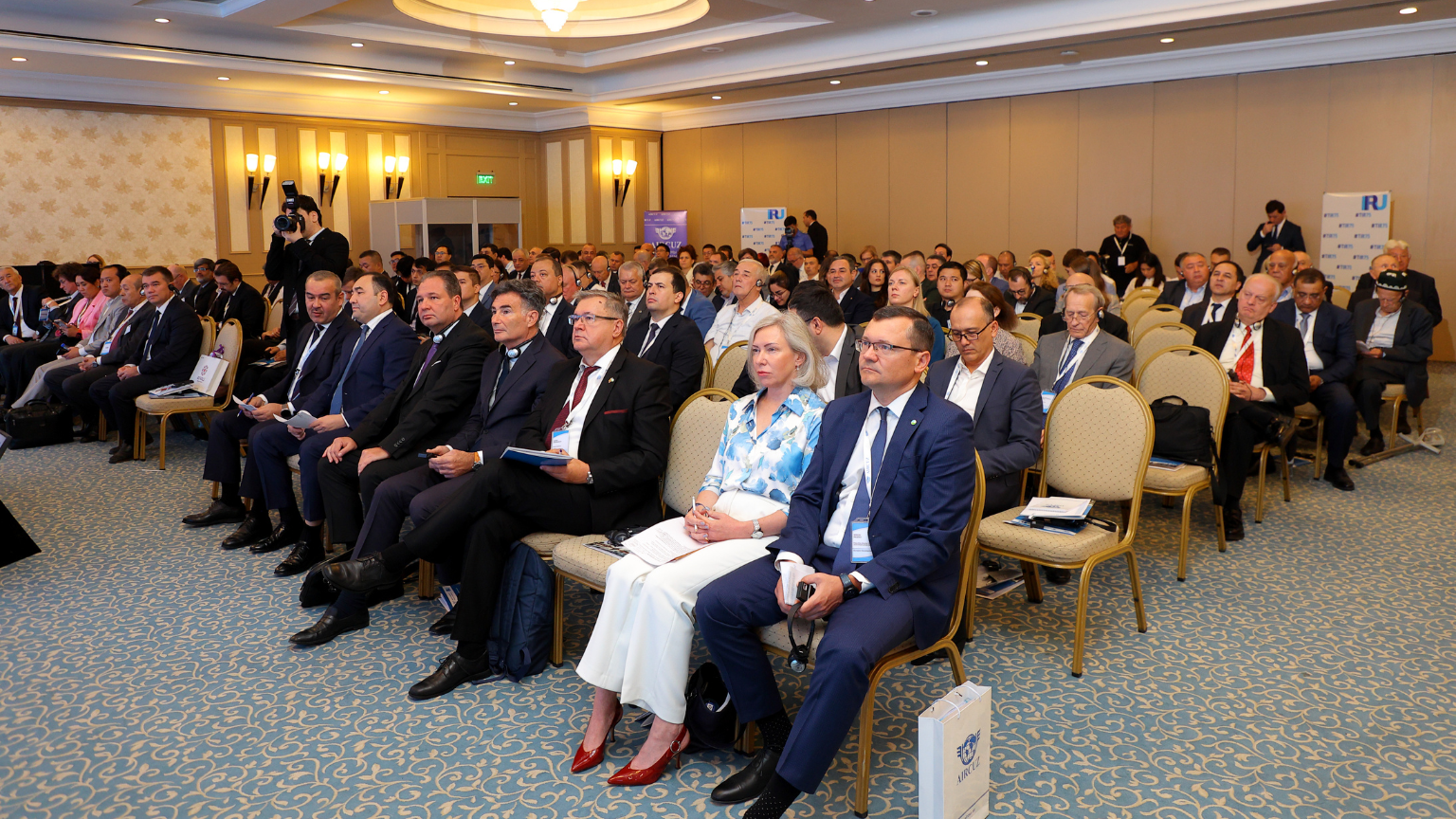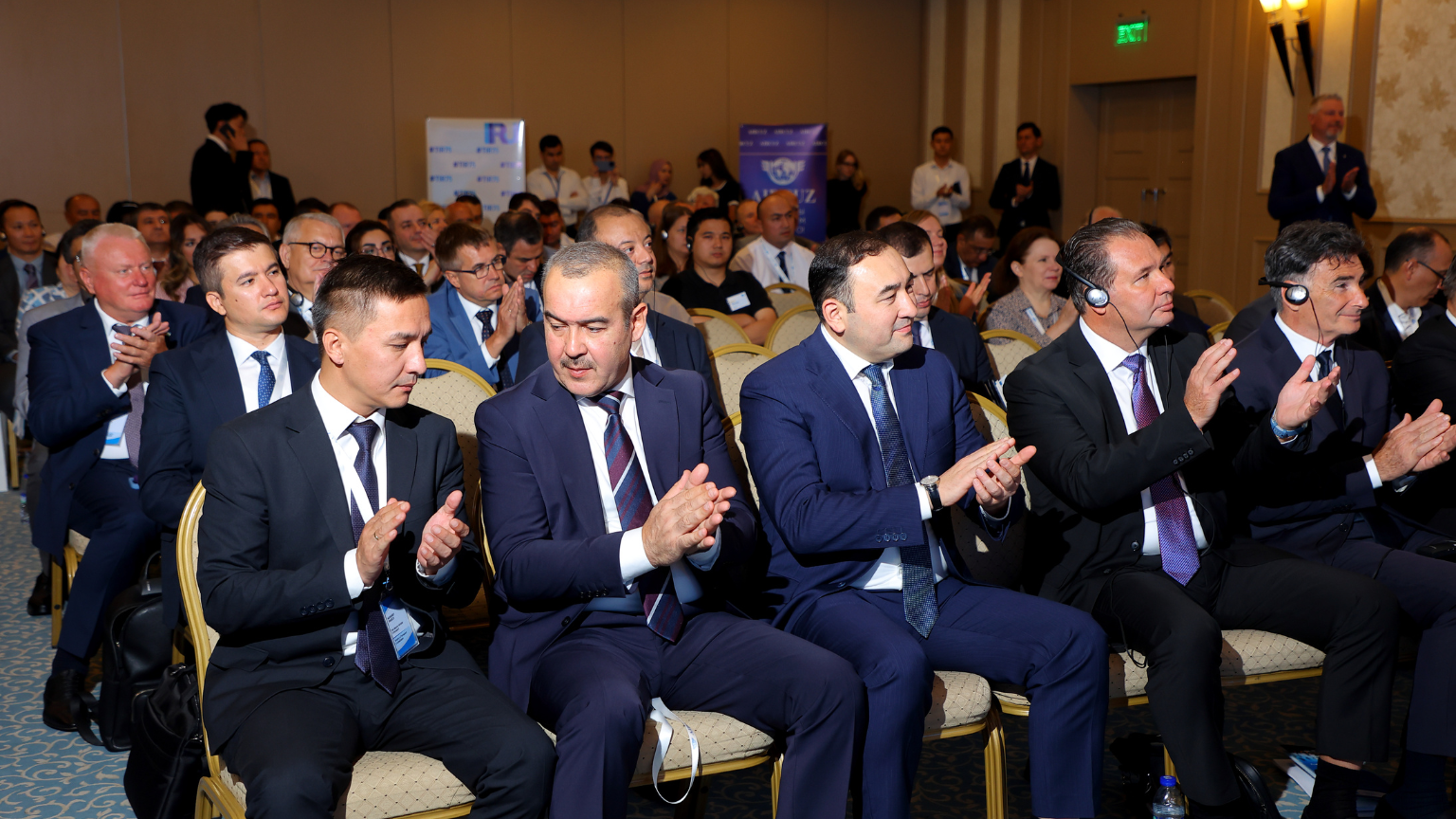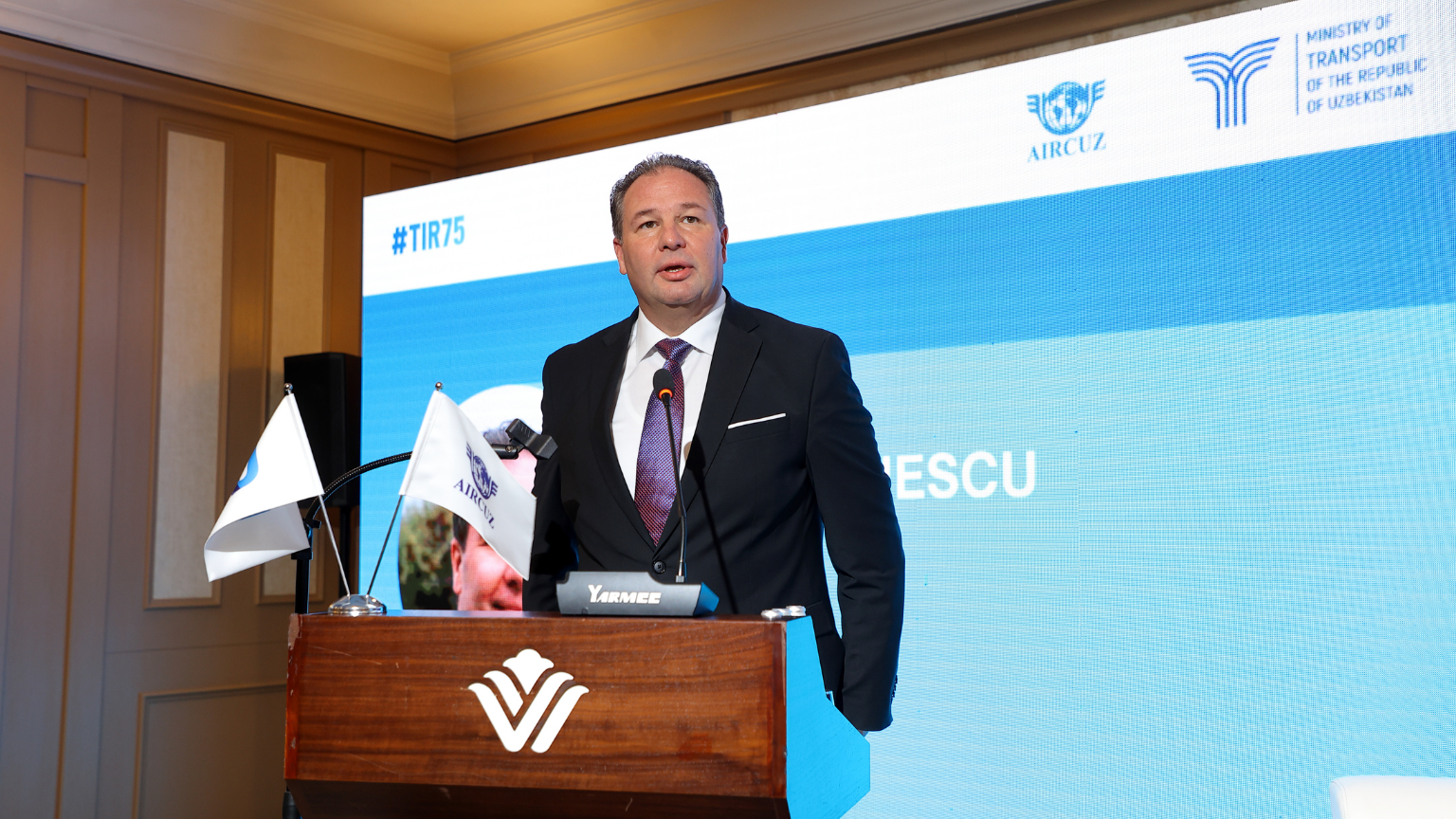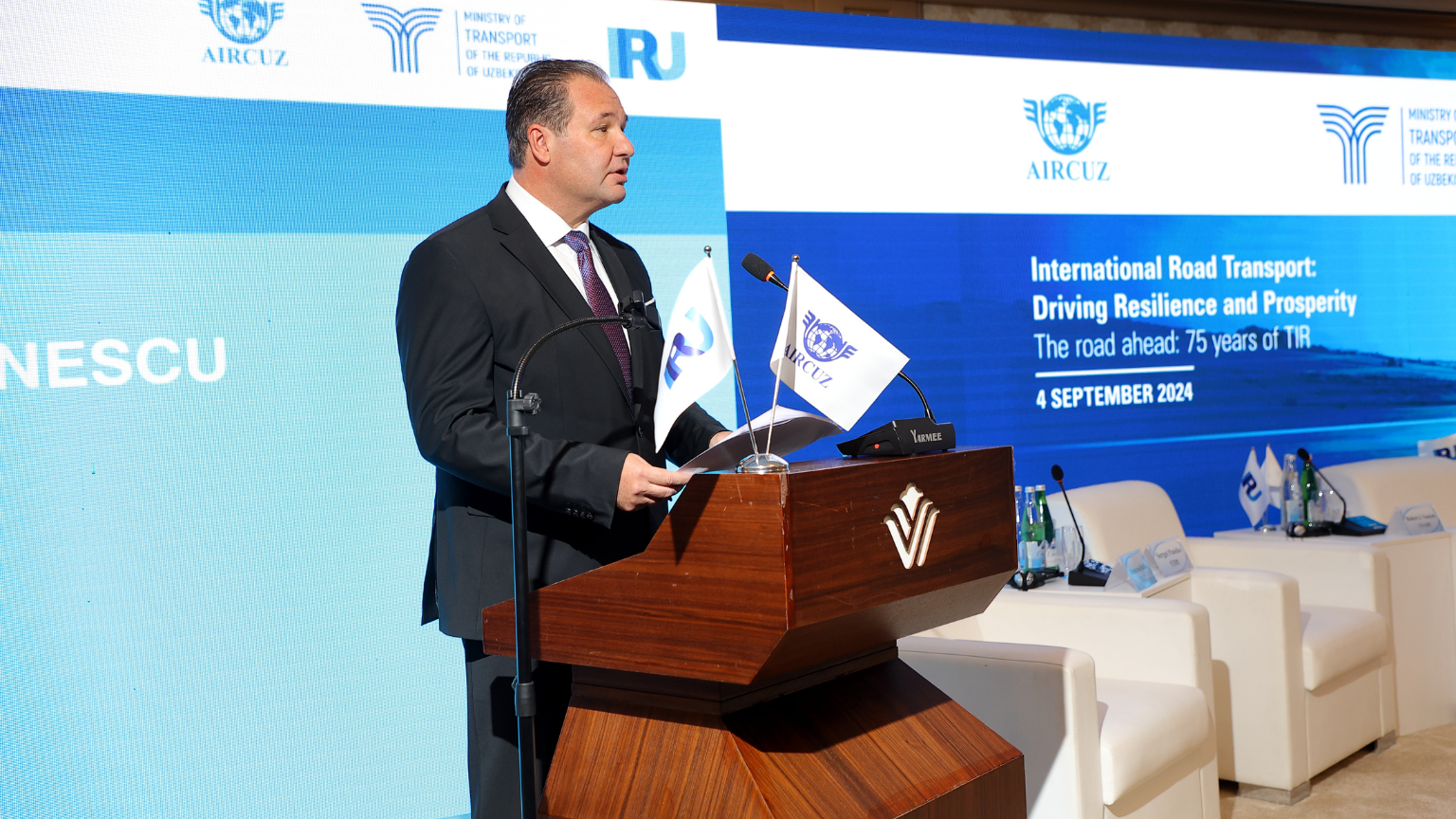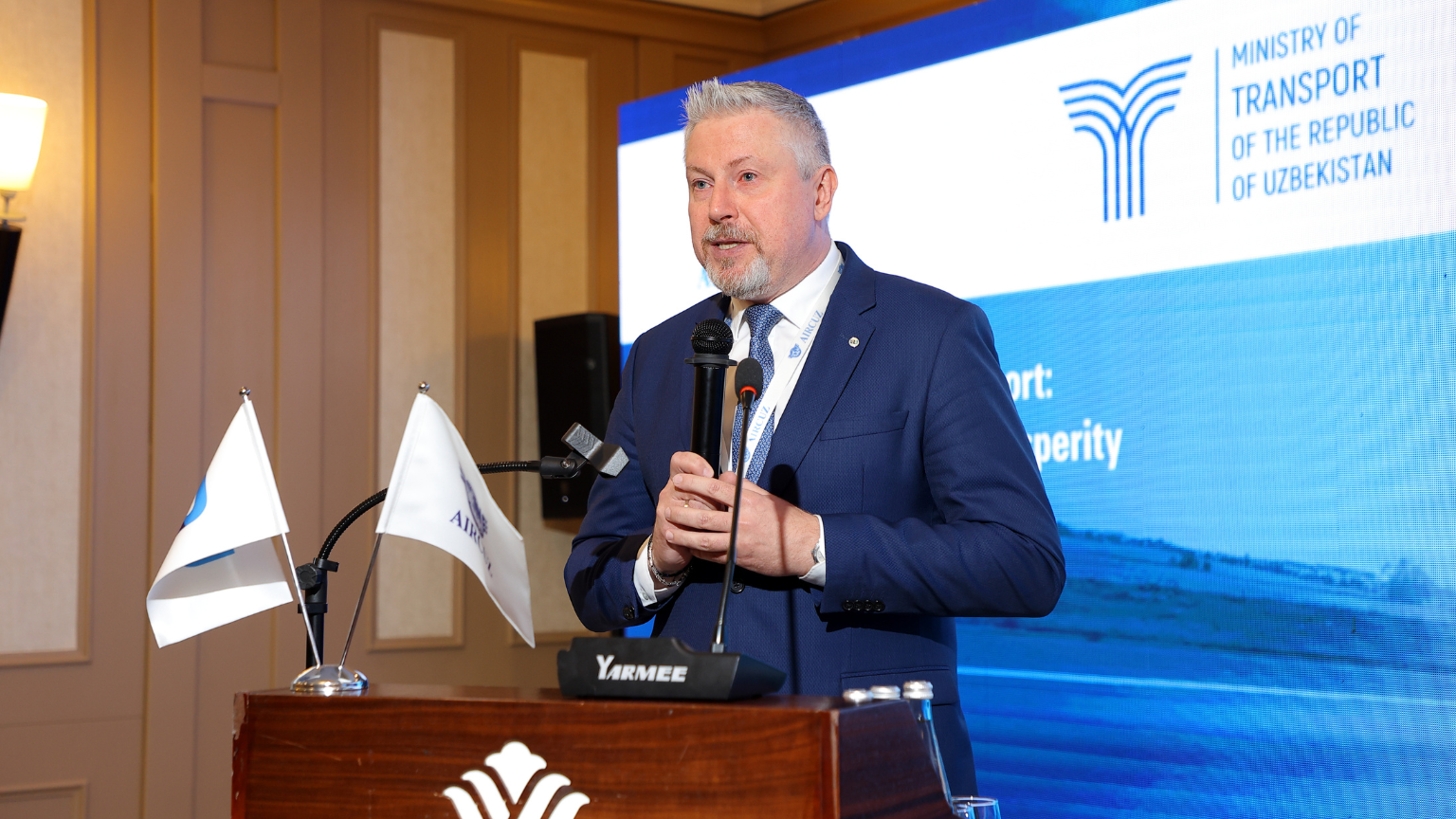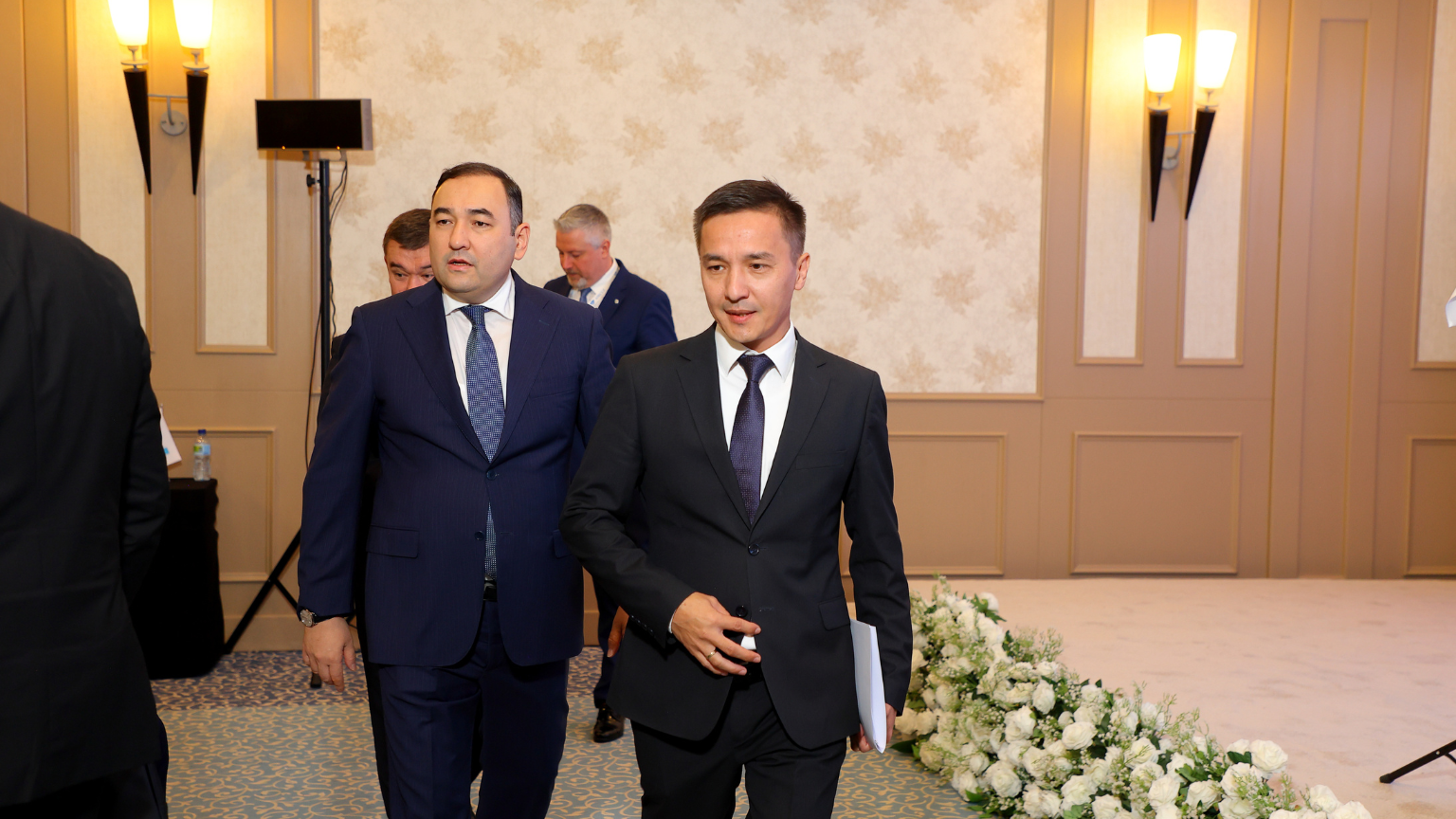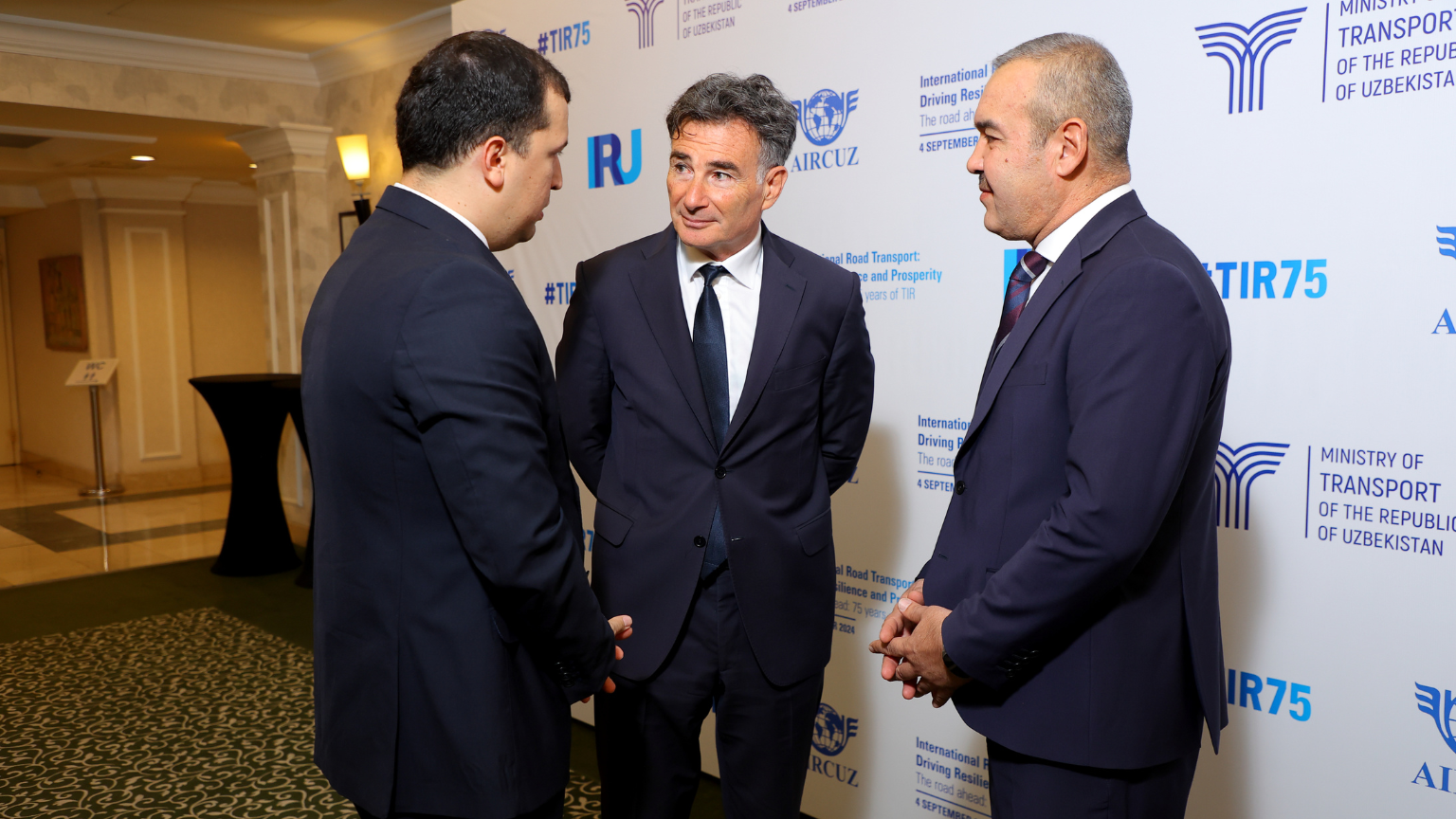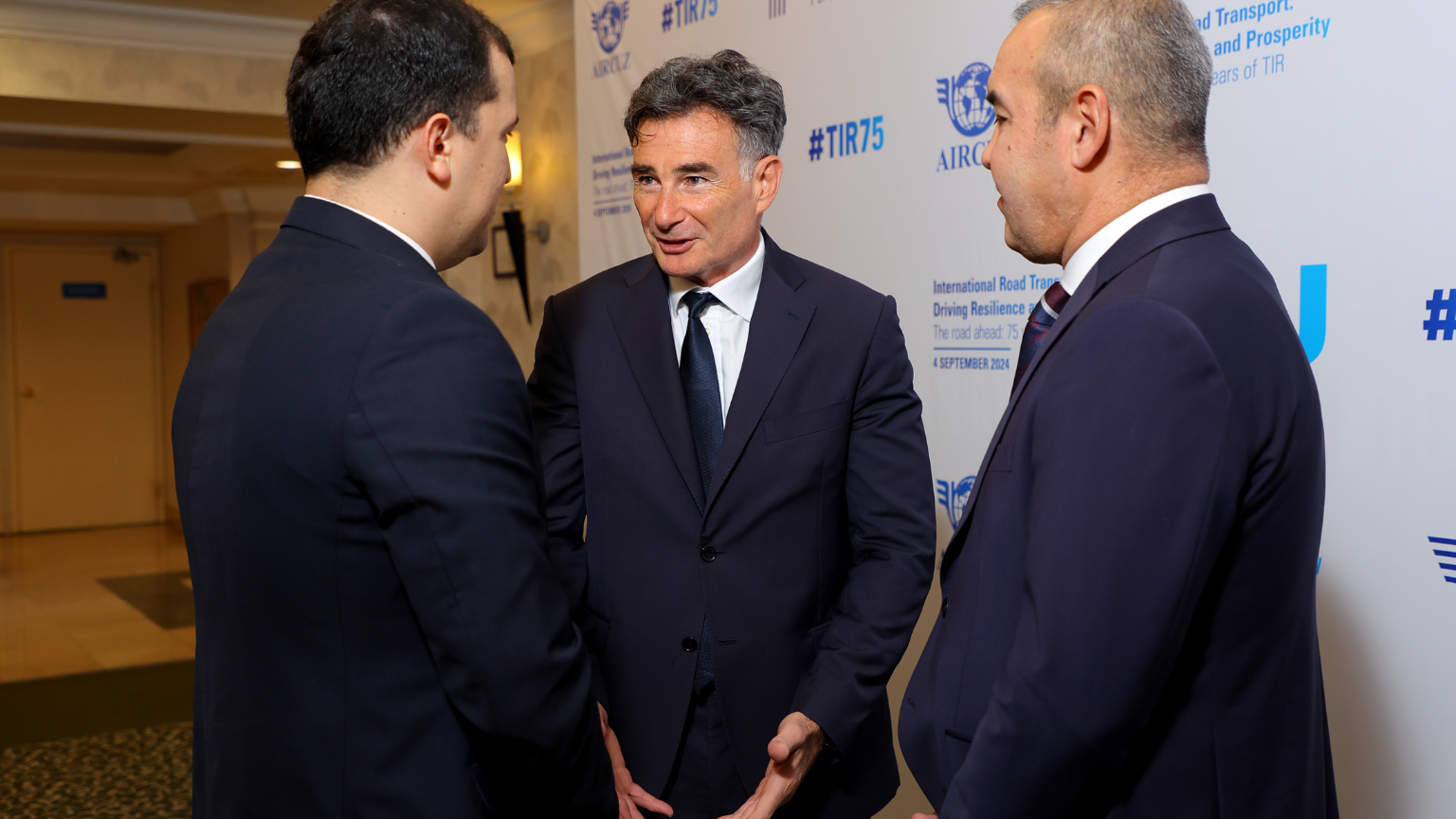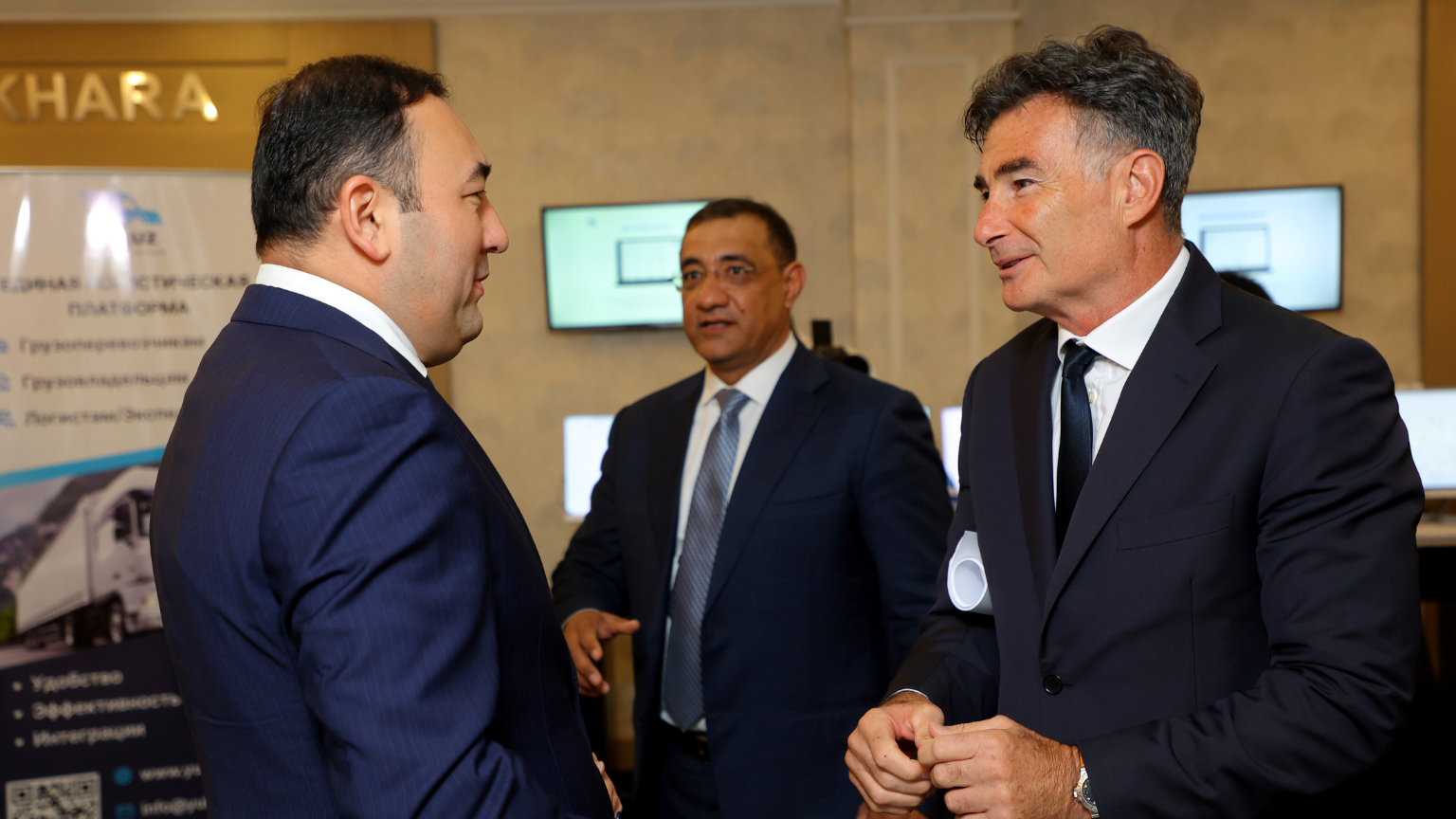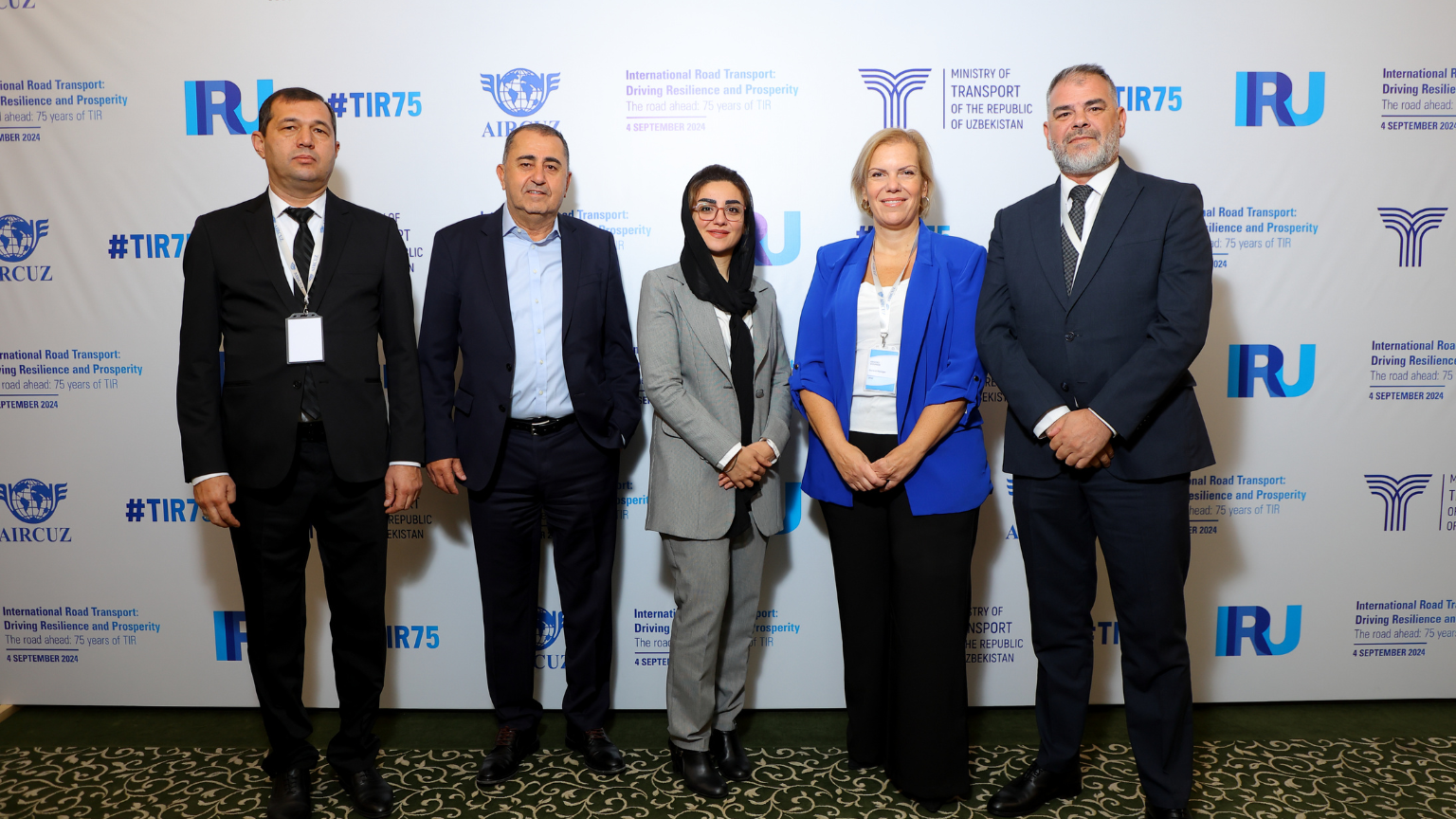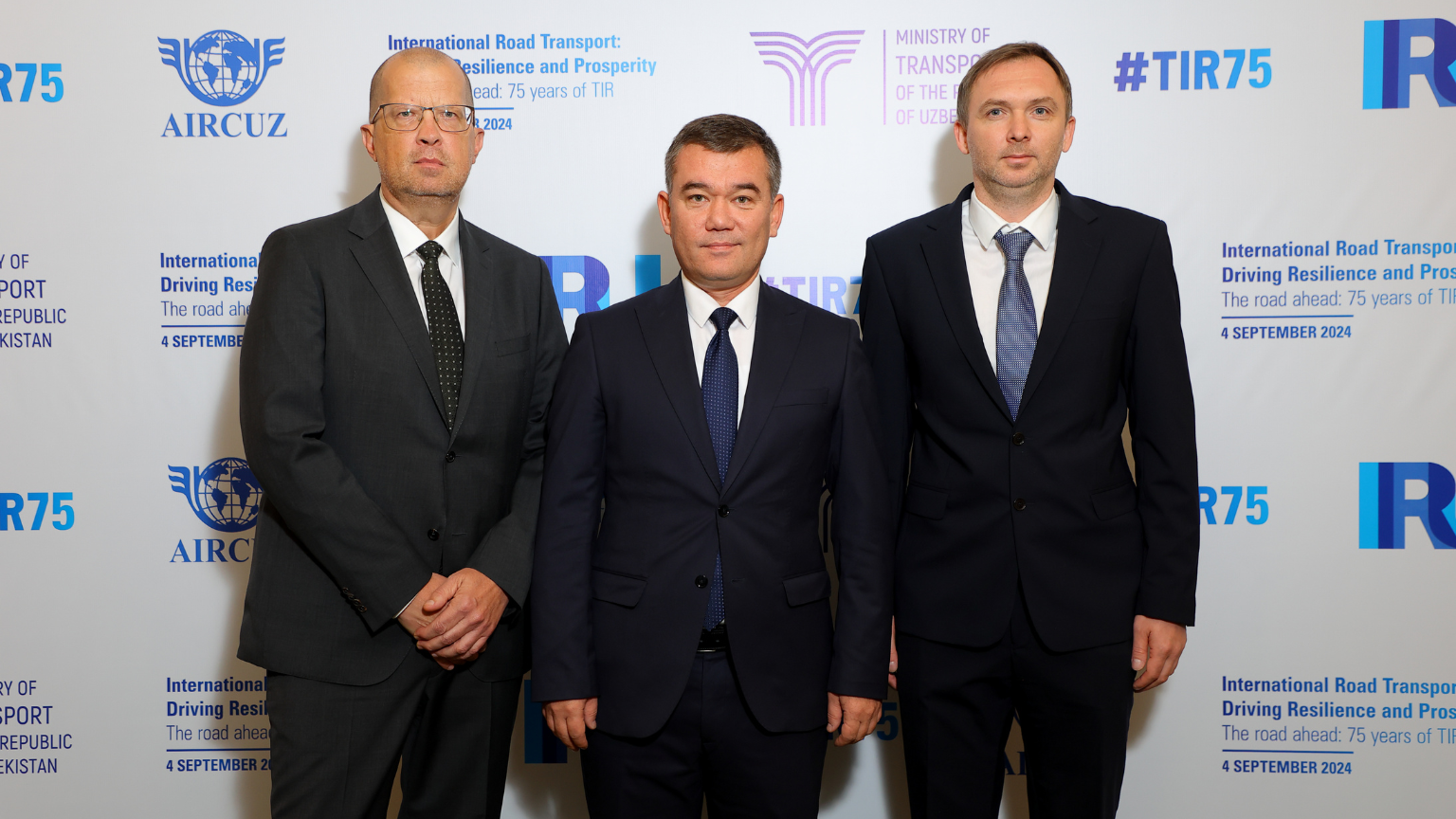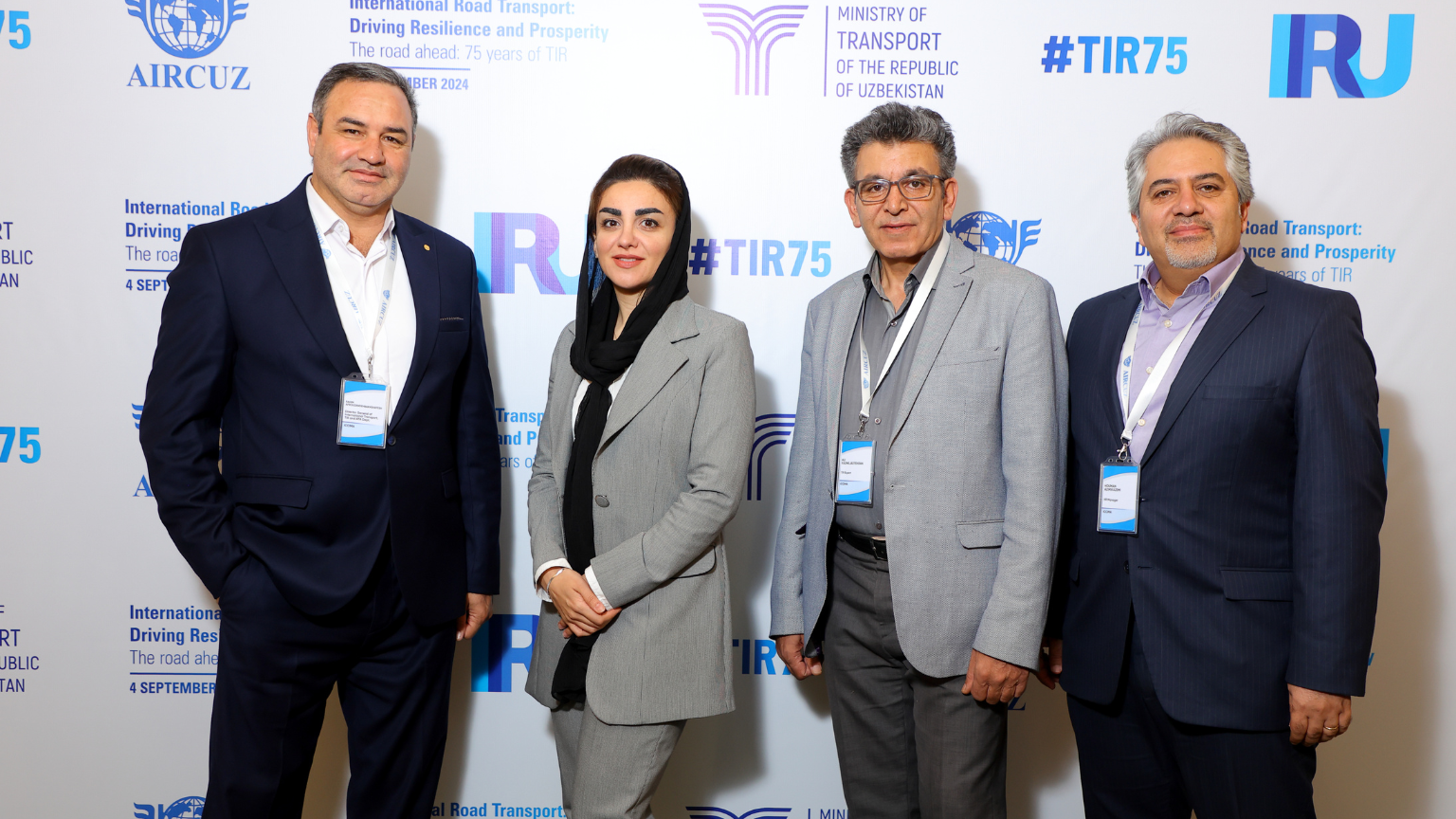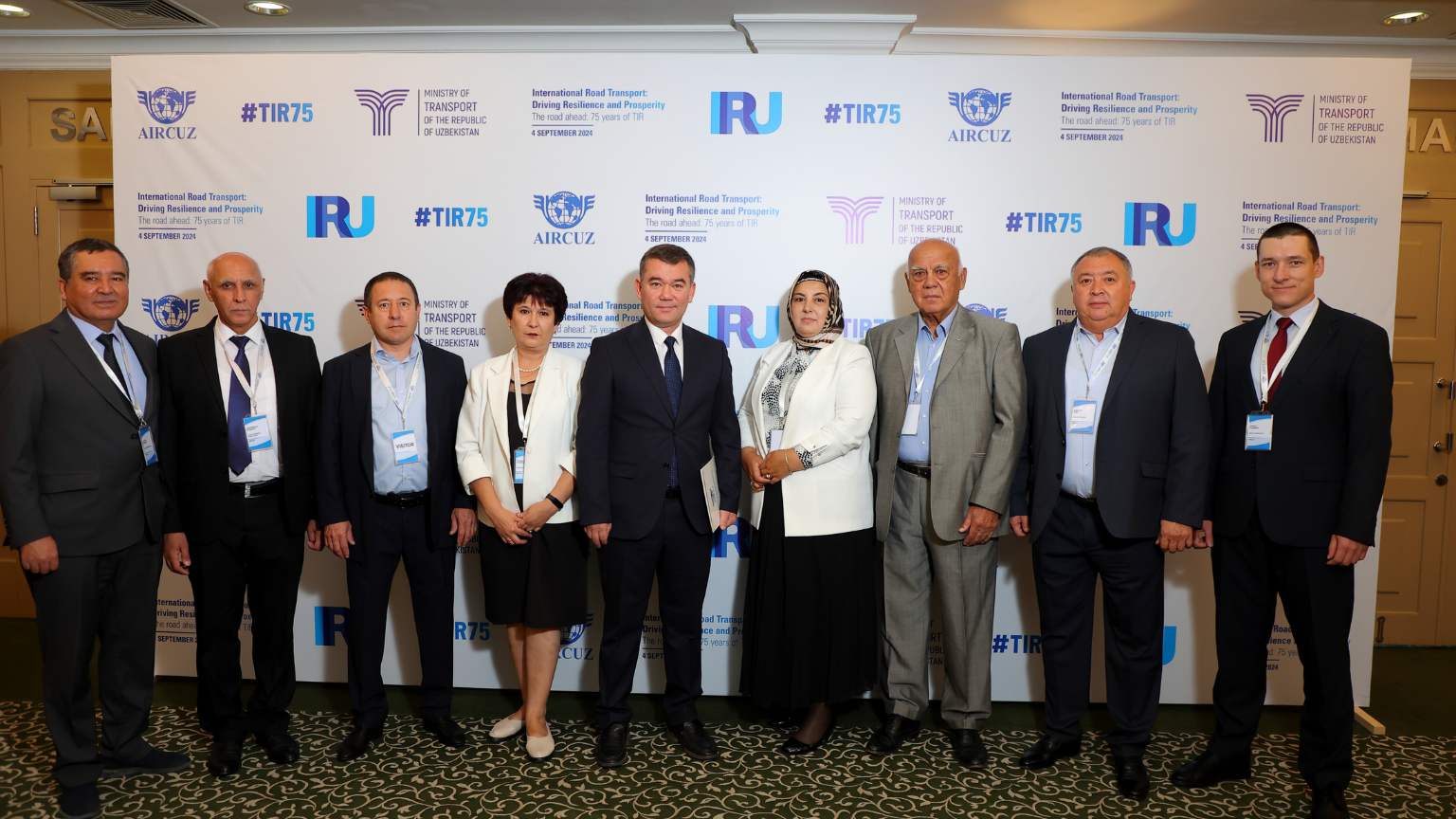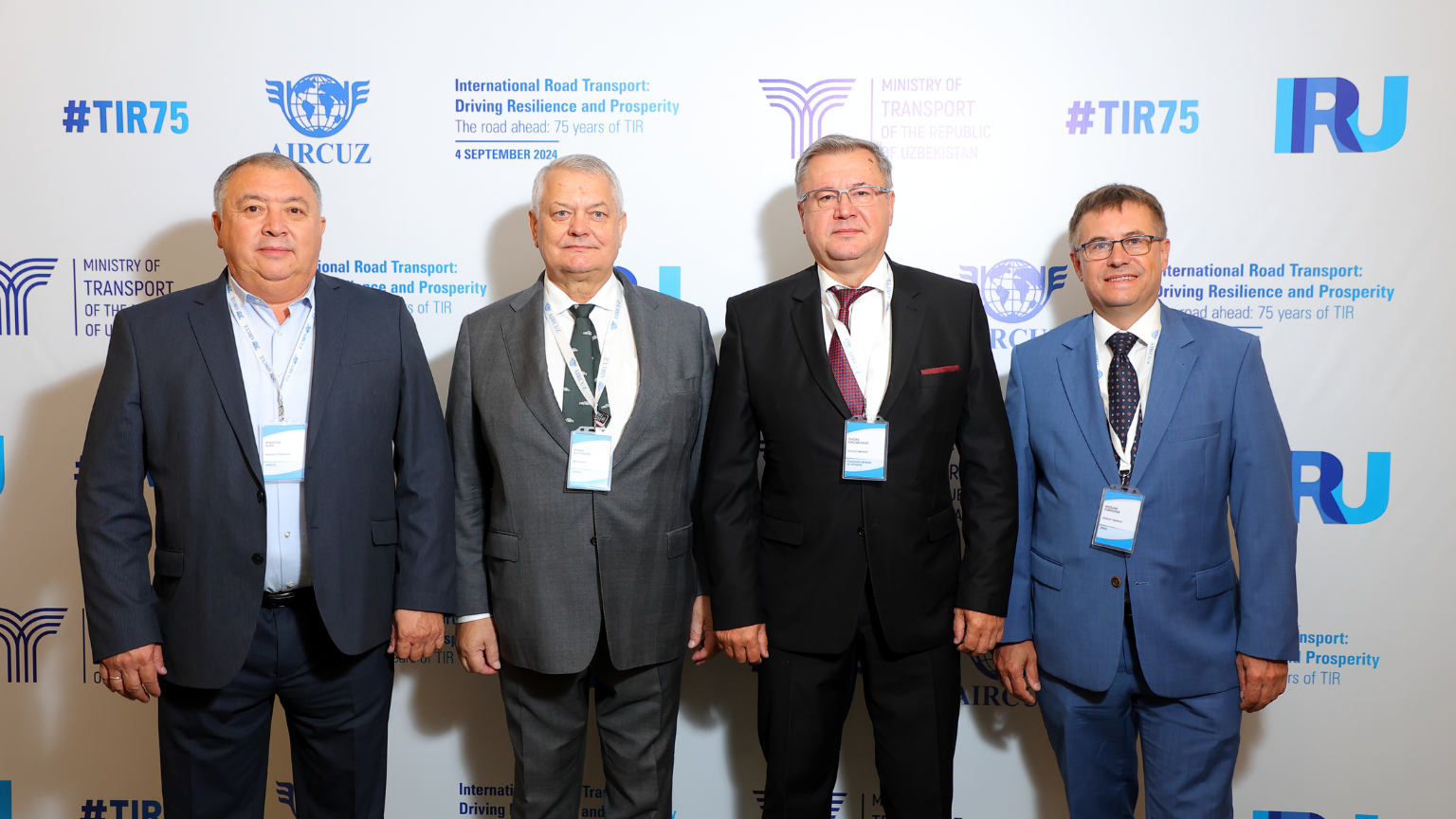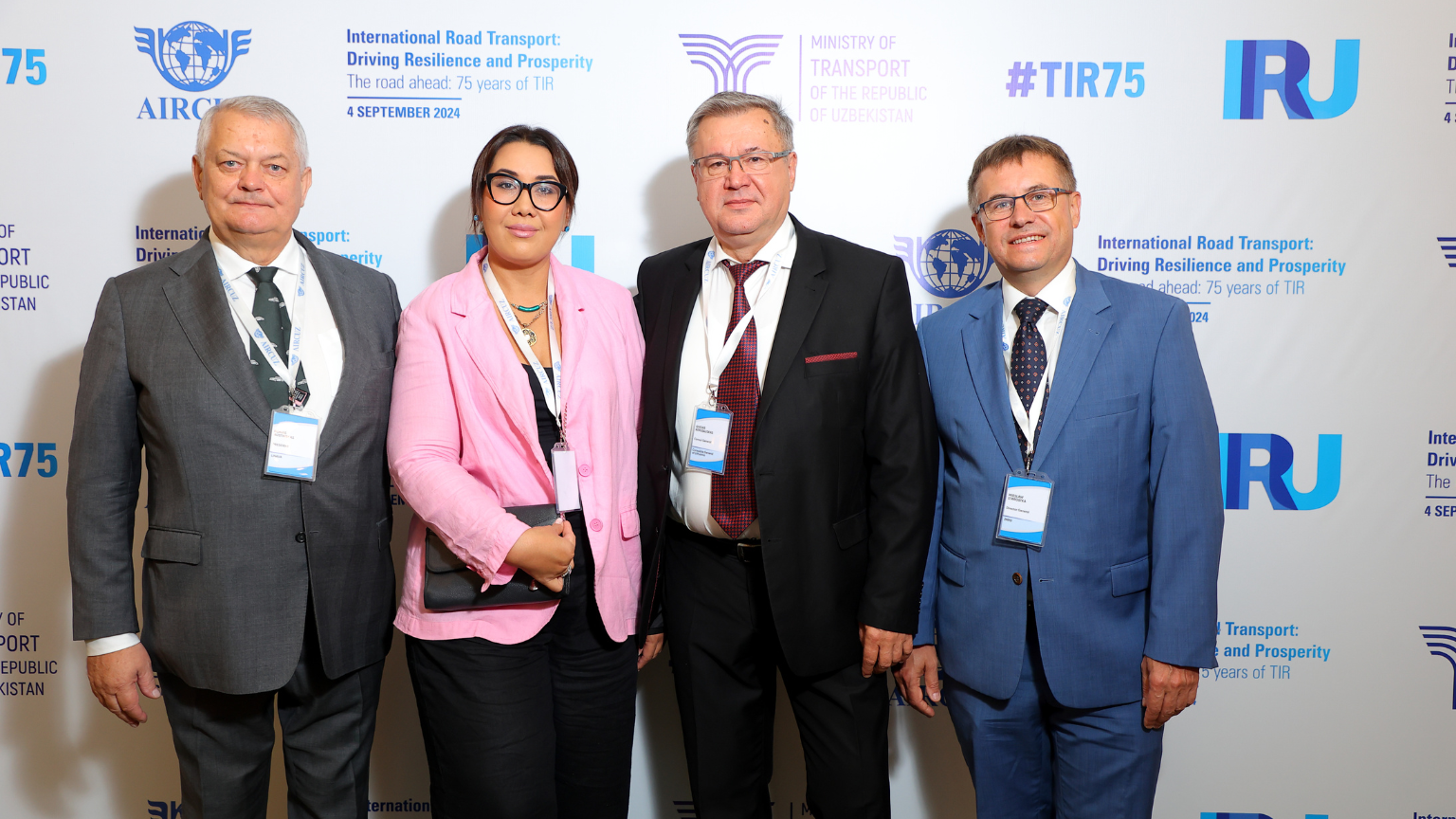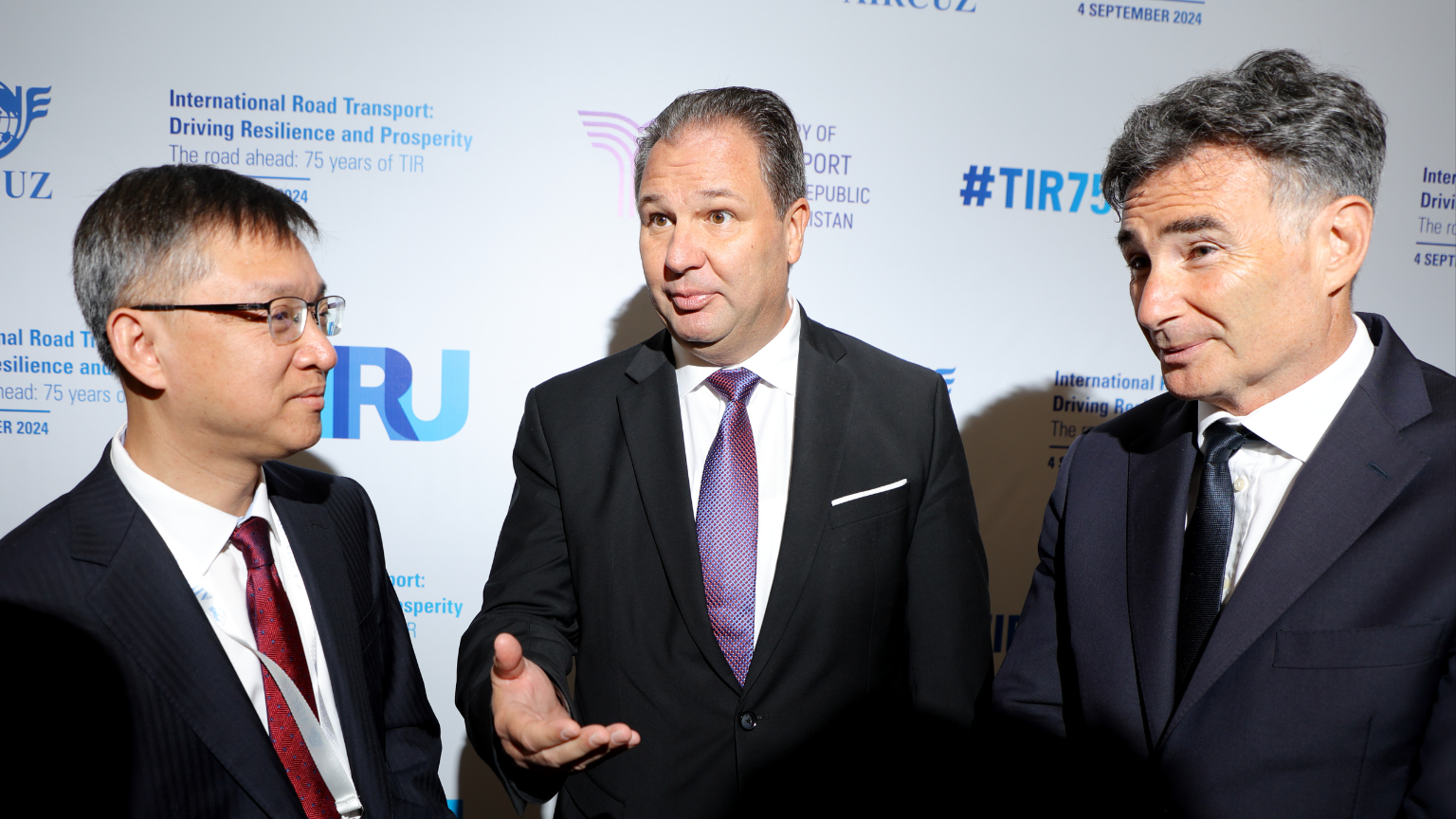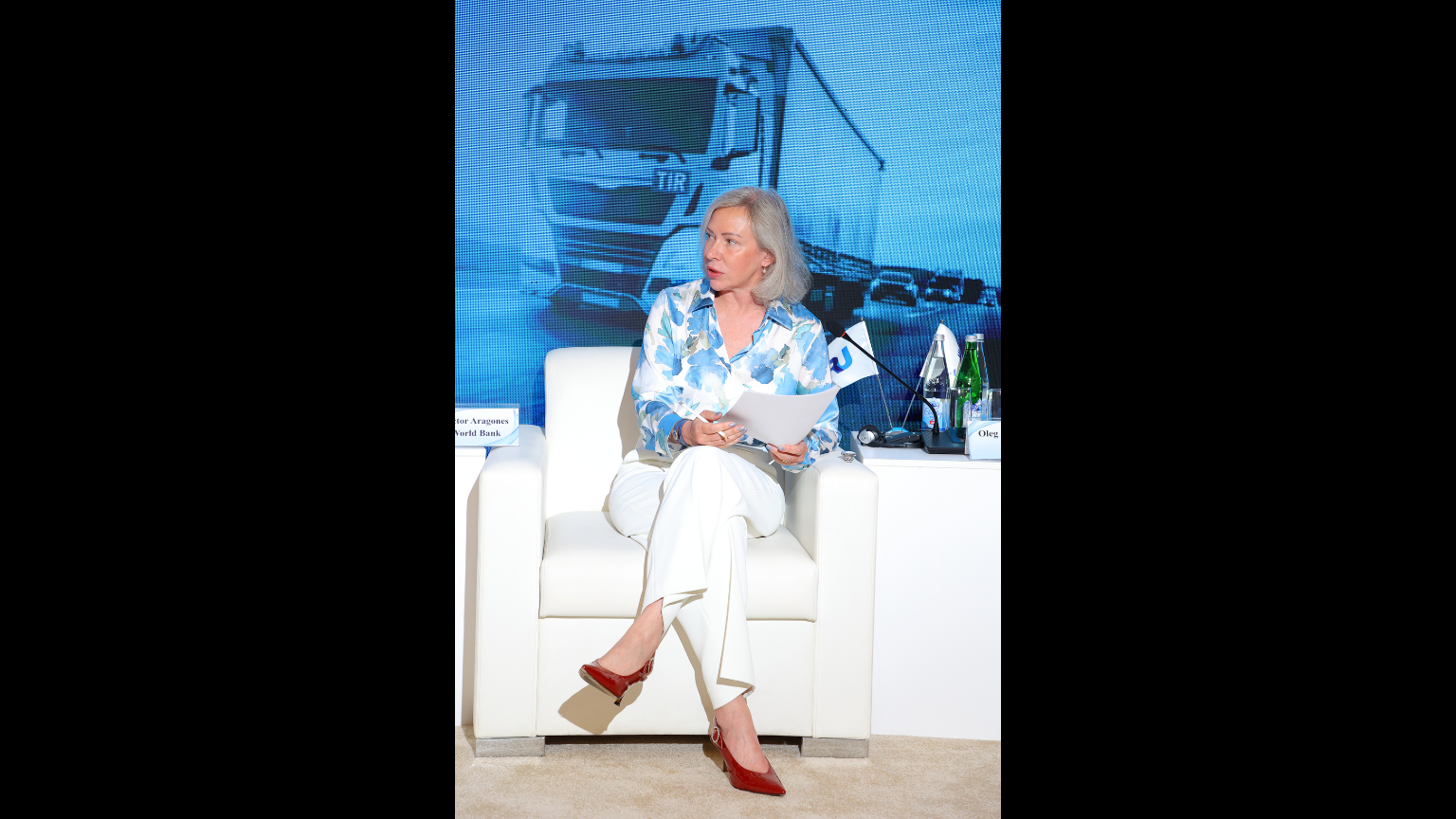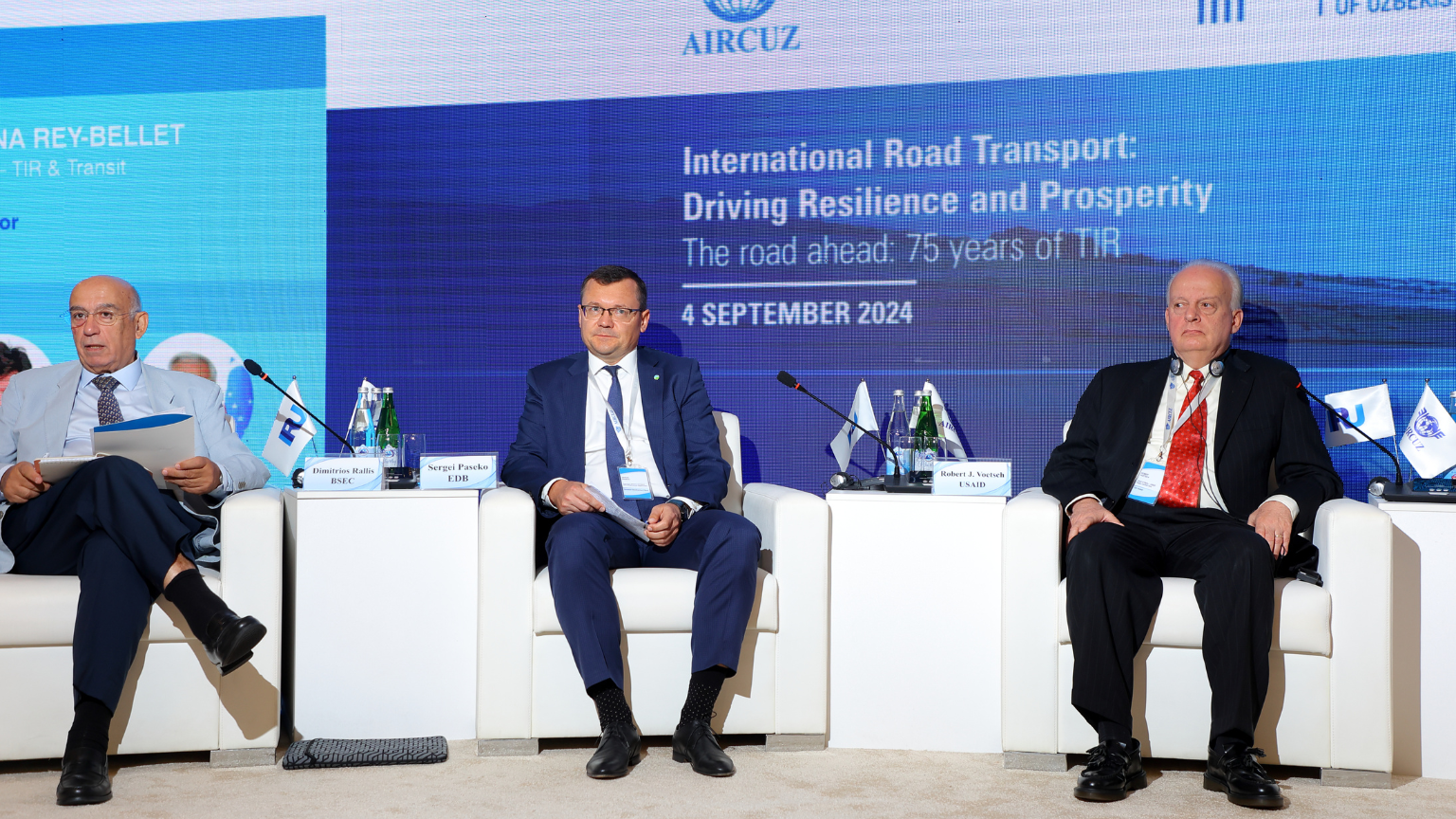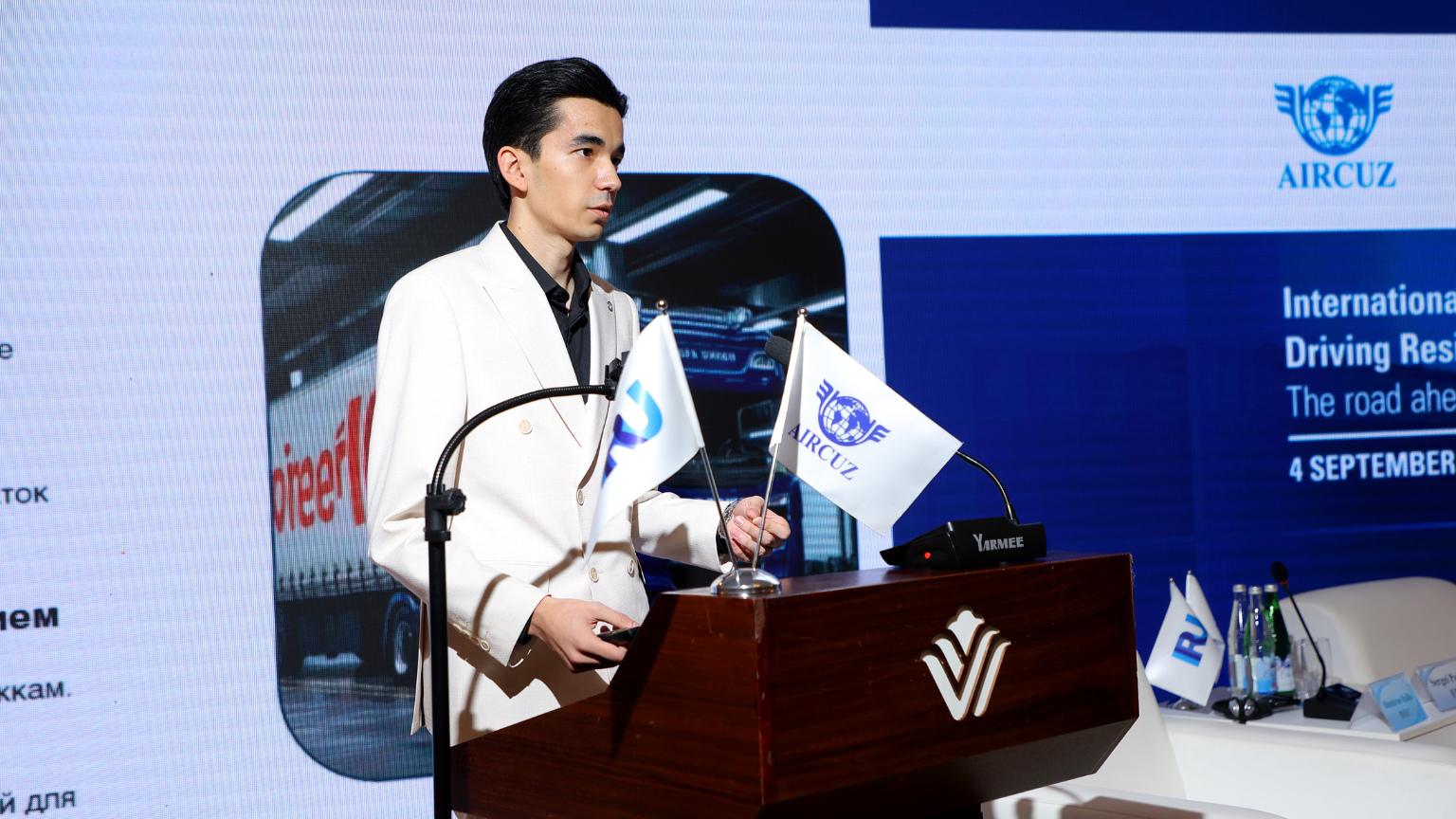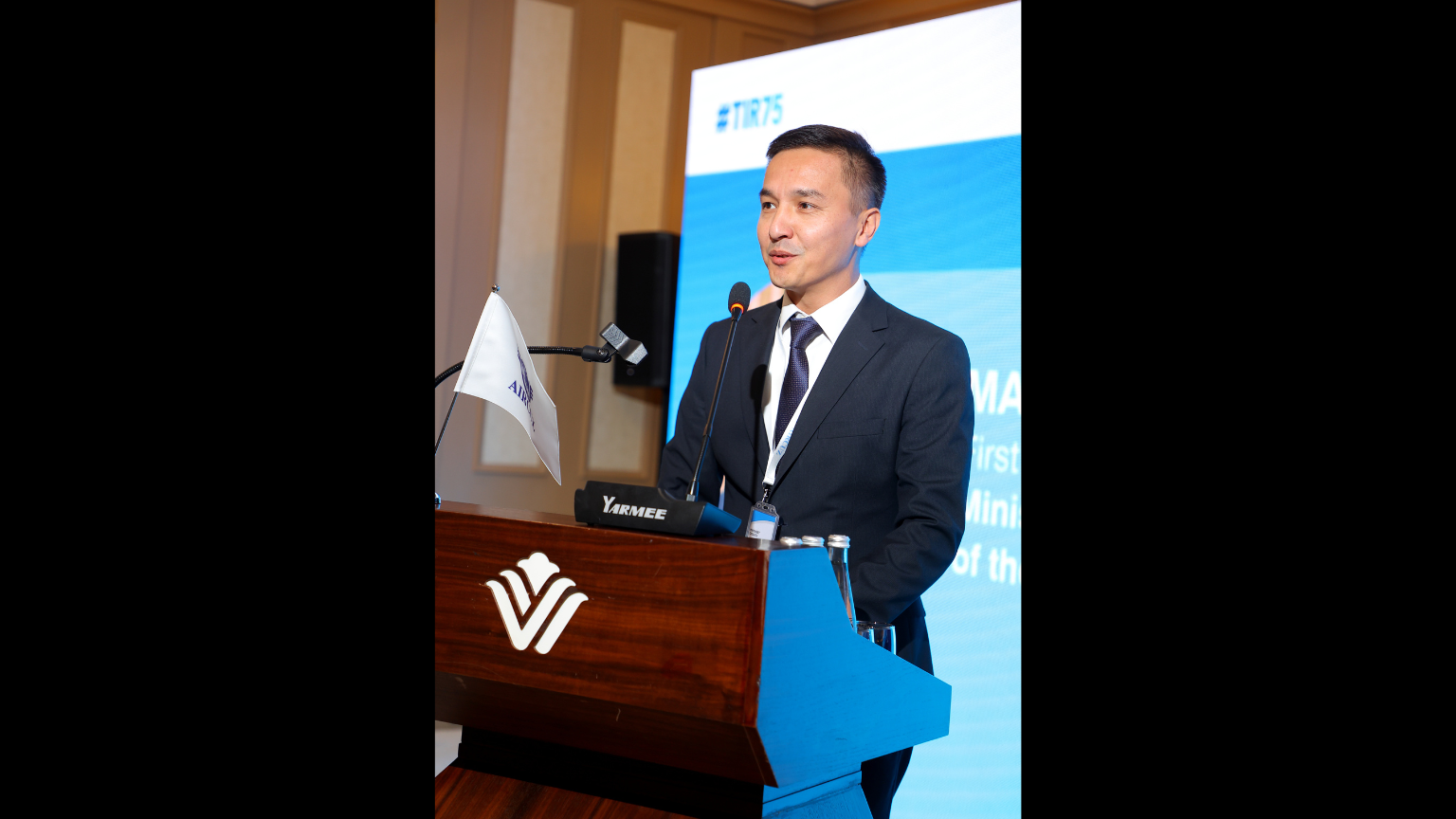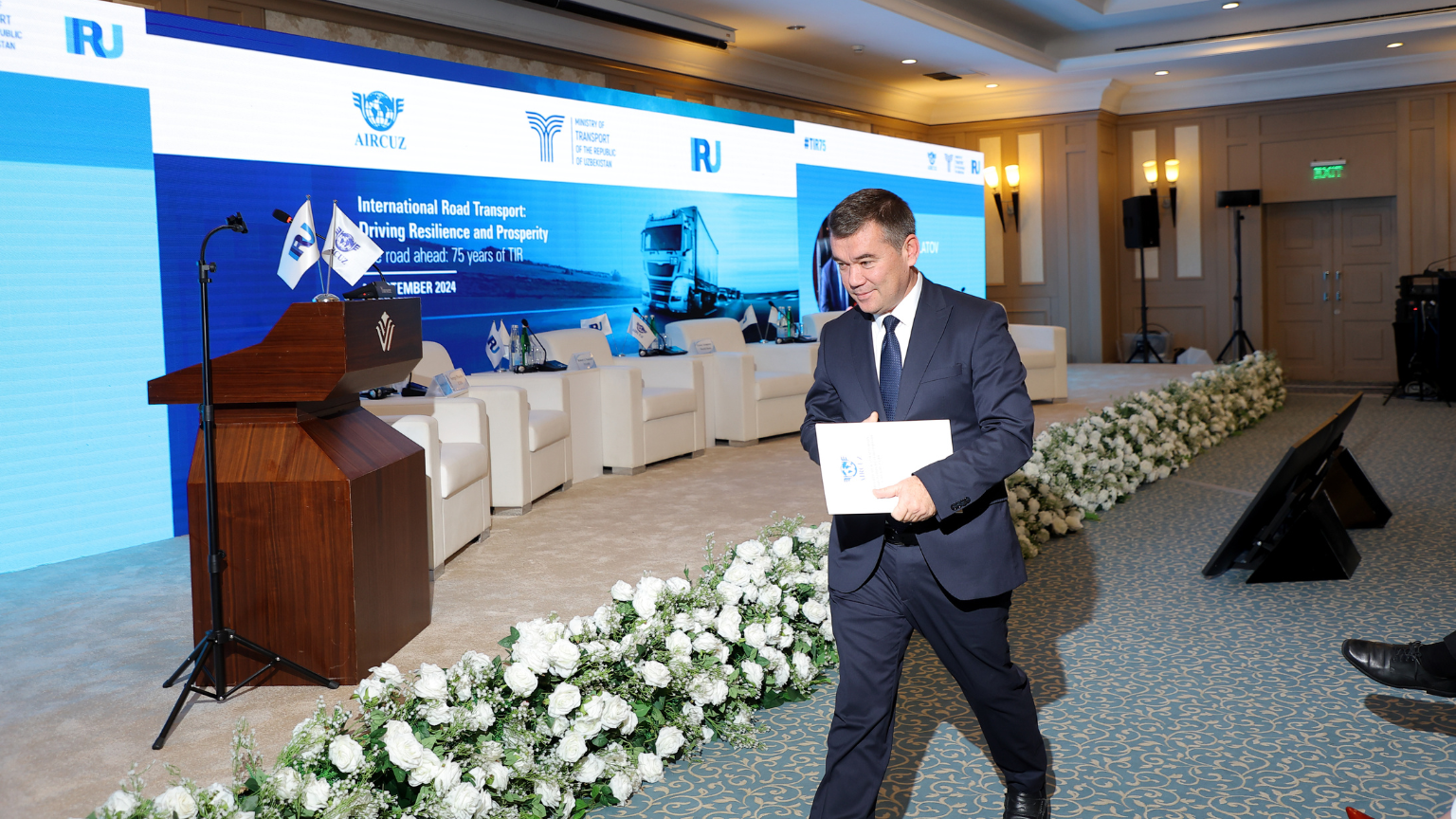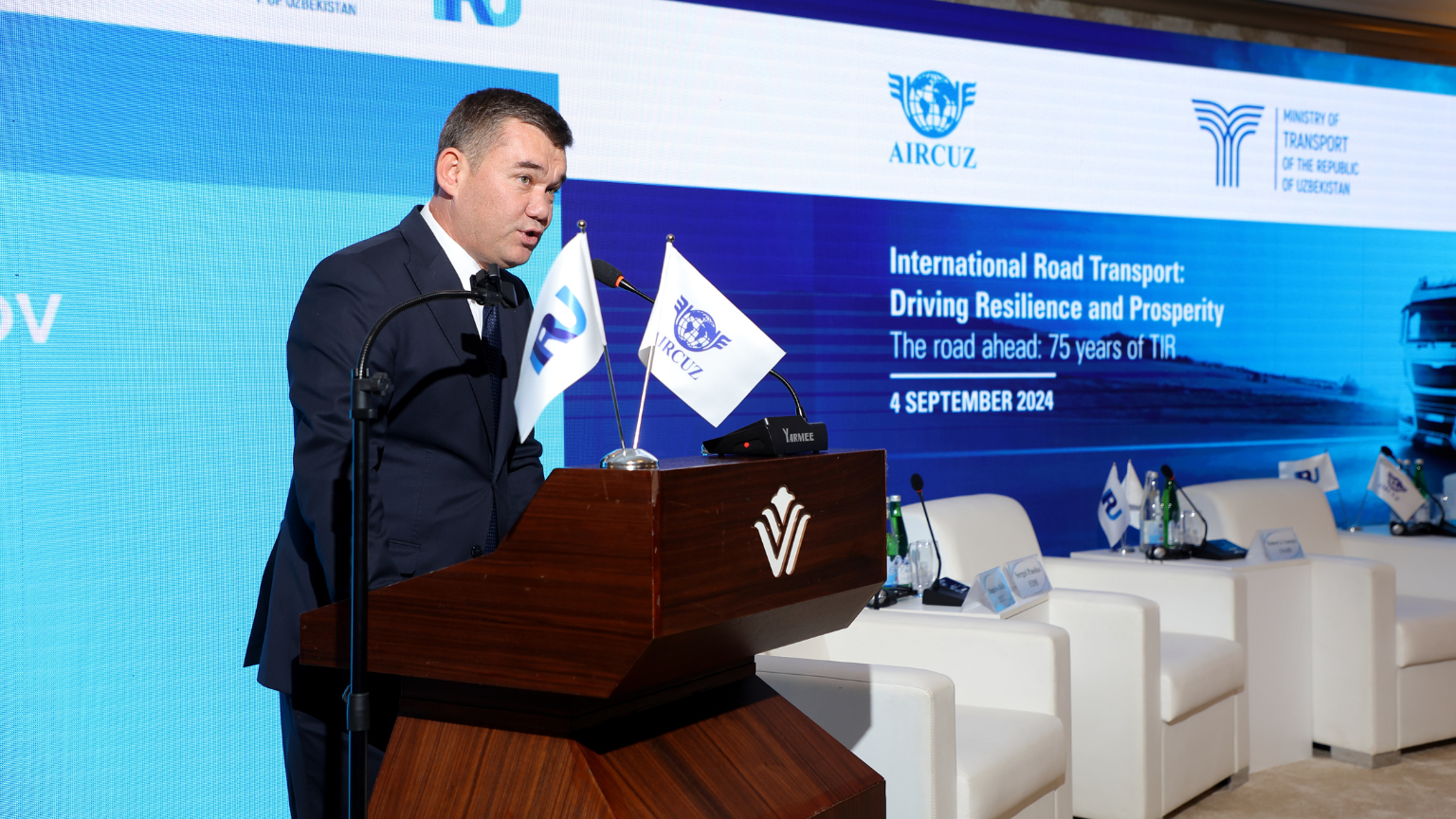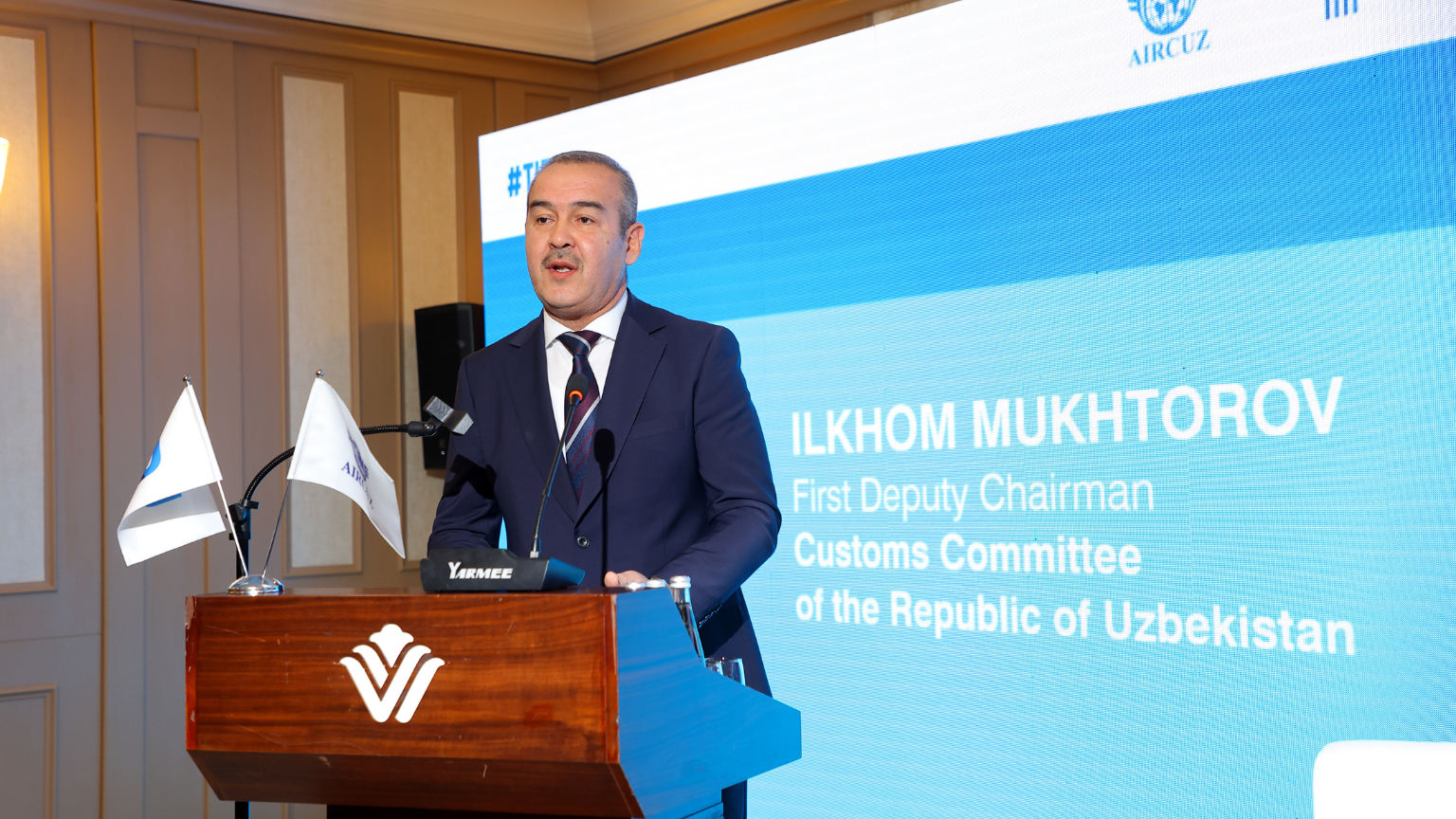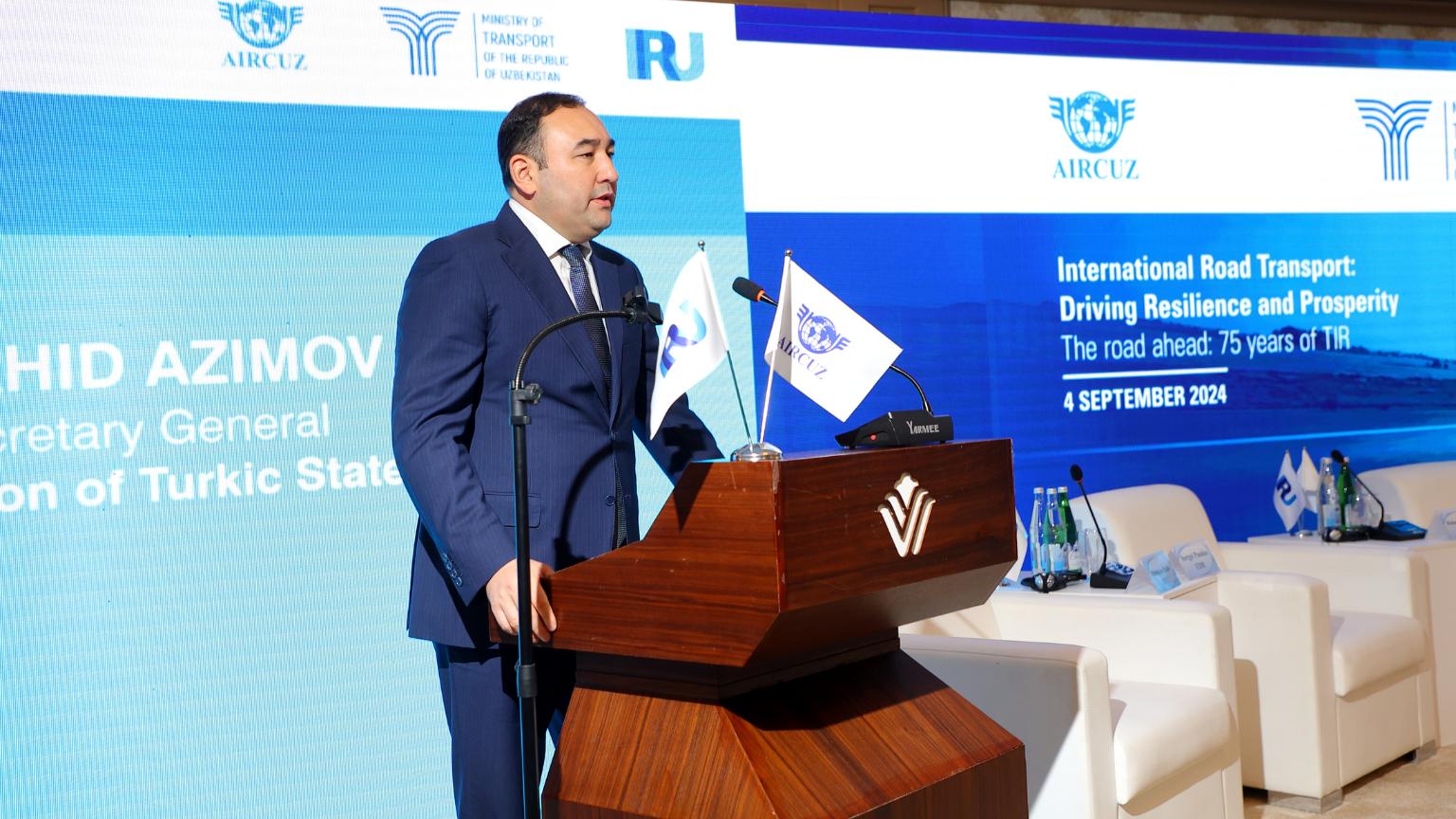Over 140 industry leaders and experts, financial institutions and development organisations from more than 30 countries came together in Tashkent for an international conference on connectivity and trade.
How do we boost the resilience and sustainability of global trade with tried-and-tested instruments?
That was the question at the heart of this year’s international road transport conference hosted by IRU member the Association of International Road Carriers of Uzbekistan (AIRCUZ), in partnership with IRU and the Ministry of Transport of Uzbekistan, in Tashkent.
In the main session on mechanisms for better connectivity, the panellists – from the Black Sea Economic Cooperation, Eurasian Development Bank, USAID’s Trade Central Asia, the Asian Development Bank and the Ministry of Investment, Industry and Trade of the Republic of Uzbekistan – weighed major challenges and opportunities facing the road transport sector. They also focused on road transport’s critical role in connecting transport corridors and modes of transport.
During the pandemic and now with ongoing geopolitical challenges such as the Red Sea crisis, road transport has shown its ability to adapt quickly. It guarantees the resilience of supply chains, demonstrating its efficiency over long distances nearing 10,000km.
75 years of TIR
The conference put forth the importance of harmonising customs, transport and border-crossing procedures with the TIR system.
The global TIR transit system offers significant time and costs savings, security and transparency based on advance risk management and mutually recognised documentation and procedures. The benefits are set to be further maximised with a widespread roll out of eTIR.
IRU President Radu Dinescu said, “For all of us who work with TIR, 2024 is a special year.”
“This year marks the 75th anniversary of TIR: the United Nations’ longest continuous public-private partnership. Over the decades, TIR has made a tangible and indisputable difference to global trade and development,” he added.
A special session explored how TIR boosts the efficiency and security of transit and trade while reducing CO2 emissions. Panellists from UNECE, IRU, TIR associations and hauliers, and the broader trade community using TIR had a lively exchange on instances where TIR was a gamechanger, particularly for intra- and inter-regional trade and connectivity. The panellists also agreed that the road ahead for TIR can only be digital and called on governments to accelerate the implementation of eTIR.
The benefits of TIR are not only recognised by transport and trade communities but also at the highest political levels.
AIRCUZ Chairman Sanjar Pulatov said, “In Uzbekistan, unprecedent levels of collaboration between the private and public sector have led to exponential growth in transport operations, companies and fleets – thus making a considerable contribution to the economy and the prosperity of Uzbek people.”
“We thank the Ministry of Transport and the State Customs Committee as well as our partners in Uzbekistan and beyond for their unwavering support. Our next step is to deploy an online platform that consolidates transport business processes, data, documentation and information exchange," he added.
IRU Secretary General Umberto de Pretto said, “Uzbekistan is a true success story of how a double-landlocked country can become the top TIR issuer.”
“I am proud and delighted that governments and businesses worldwide continue to make the most of TIR to elevate the efficiency and security of trade and transit," he added.
IRU’s President and Secretary General also held bilateral meetings with Ilhom Makhkamov (Minister of Transport of the Republic of Uzbekistan), Ilkhom Mukhtorov (First Deputy Chairman of the State Customs Committee of the Republic of Uzbekistan), Mirvokhid Azimov (Deputy Secretary General of the Organization of Turkic States), and Dimitrios Rallis (Deputy Secretary General of BSEC PERMIS). Additionally, Radu Dinescu and Umberto de Pretto joined informal consultations on EU-Uzbek connectivity, sharing best practices on market access and visa issuance liberalisation
The conference concluded with an award ceremony recognising Eurasia’s top road transport managers and operators.
On the ground
Following the conference, a field visit was conducted to the heart of the ancient Silk Road, the city of Bukhara, for an informal roundtable on east-west and north-south connectivity.
The participants were updated on the most recent TIR developments in China and shared their practical experiences on operationalising new routes with TIR. The programme offered extensive networking and business matchmaking opportunities.

